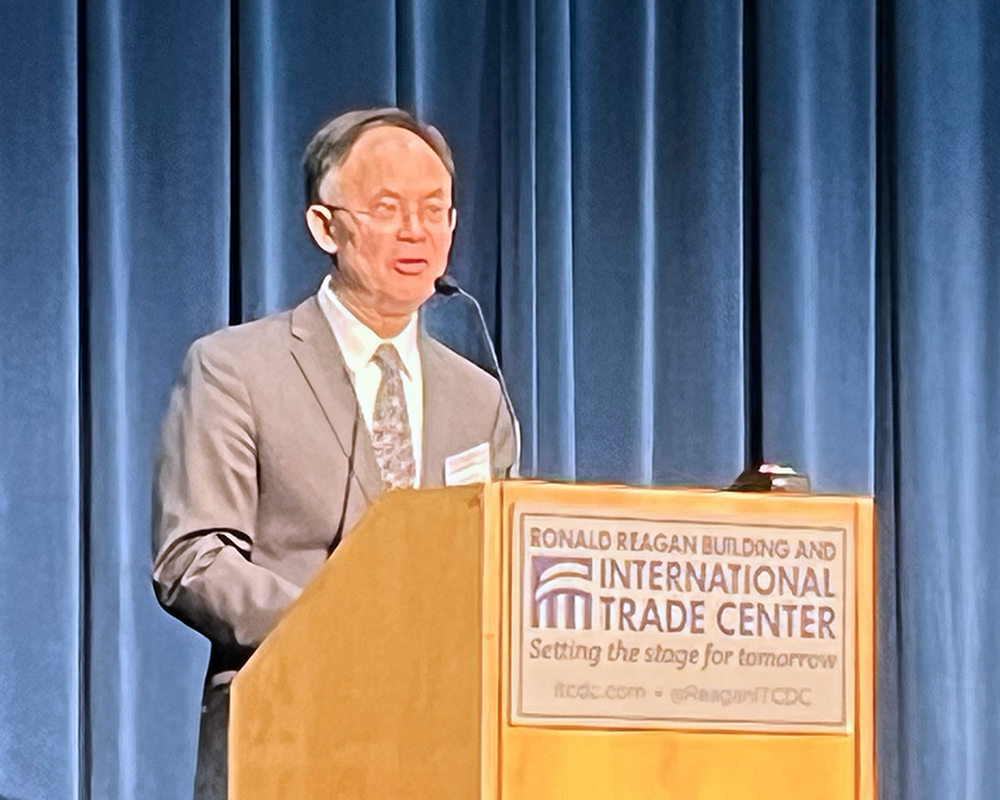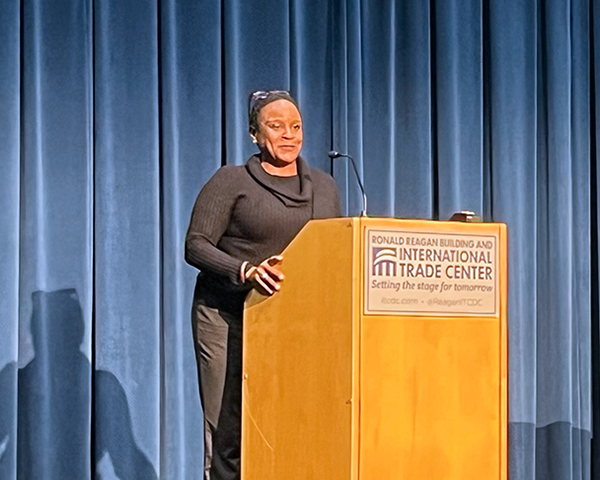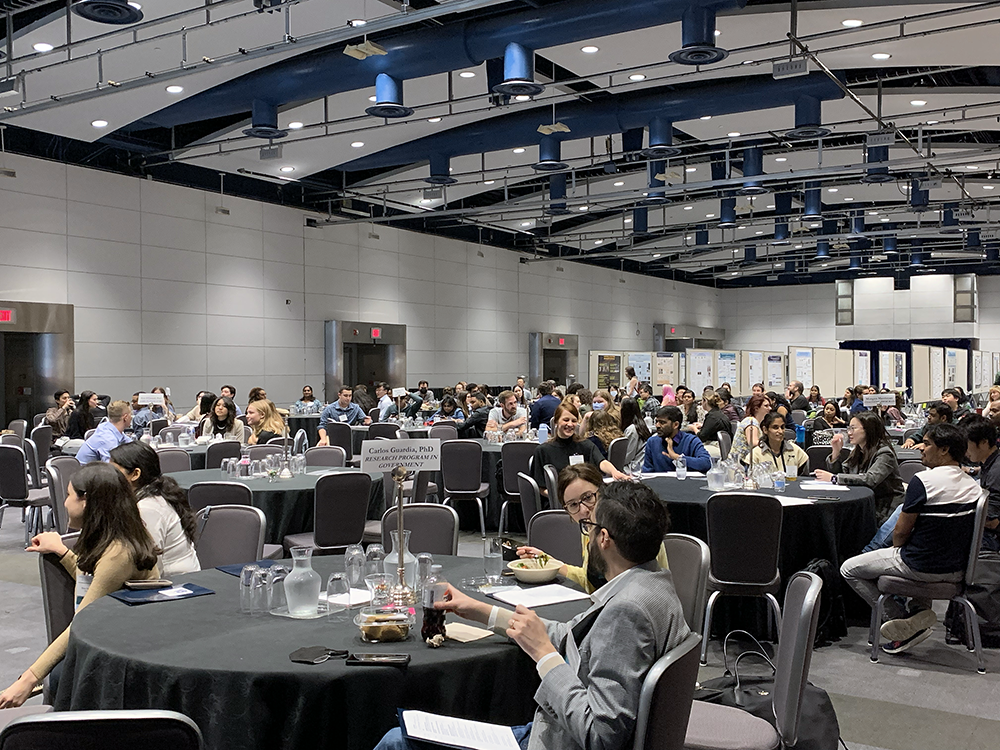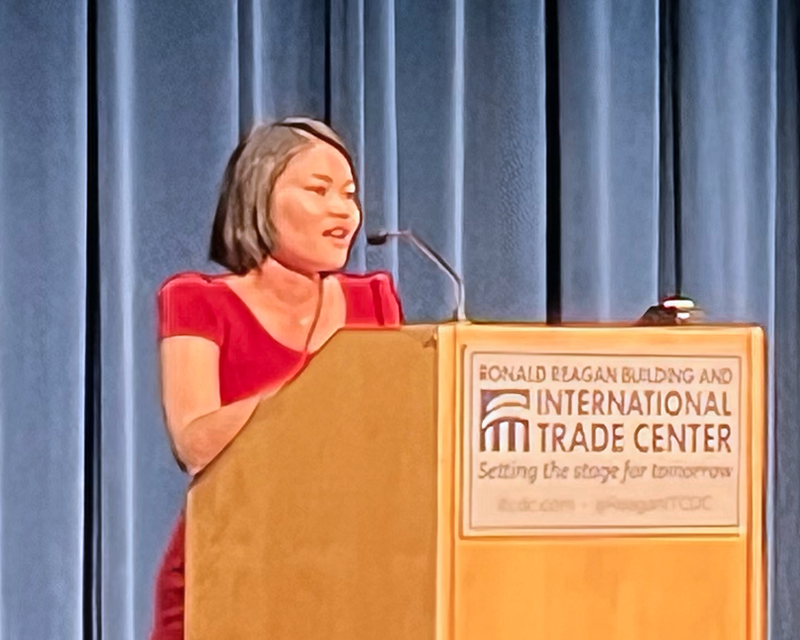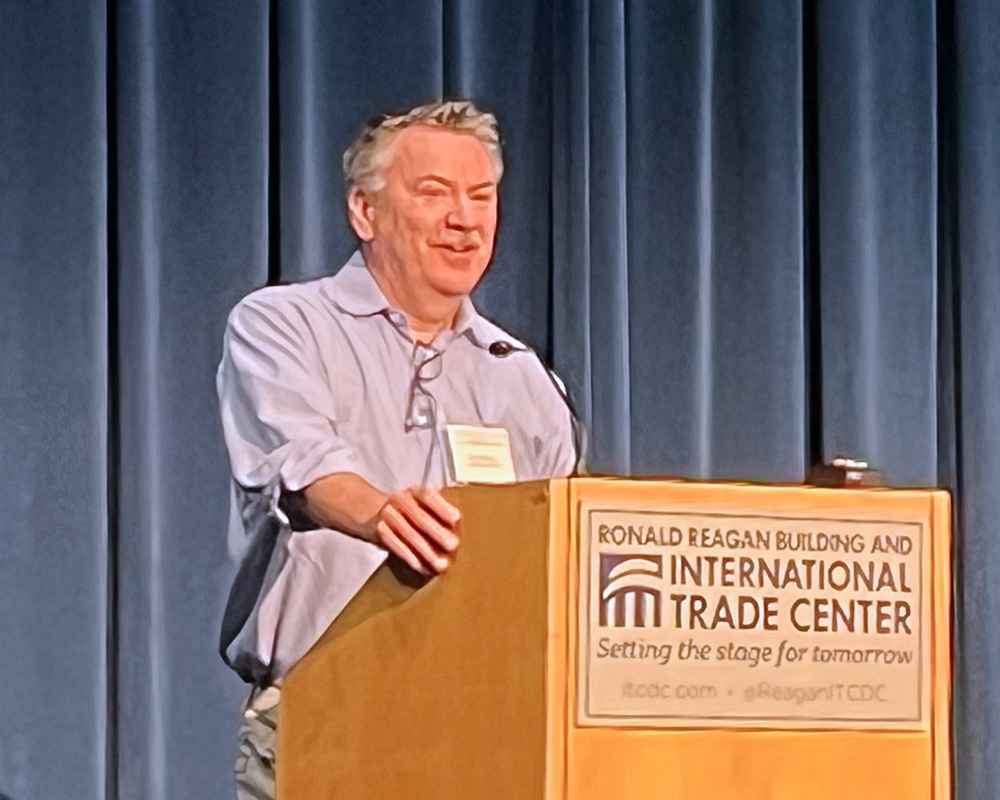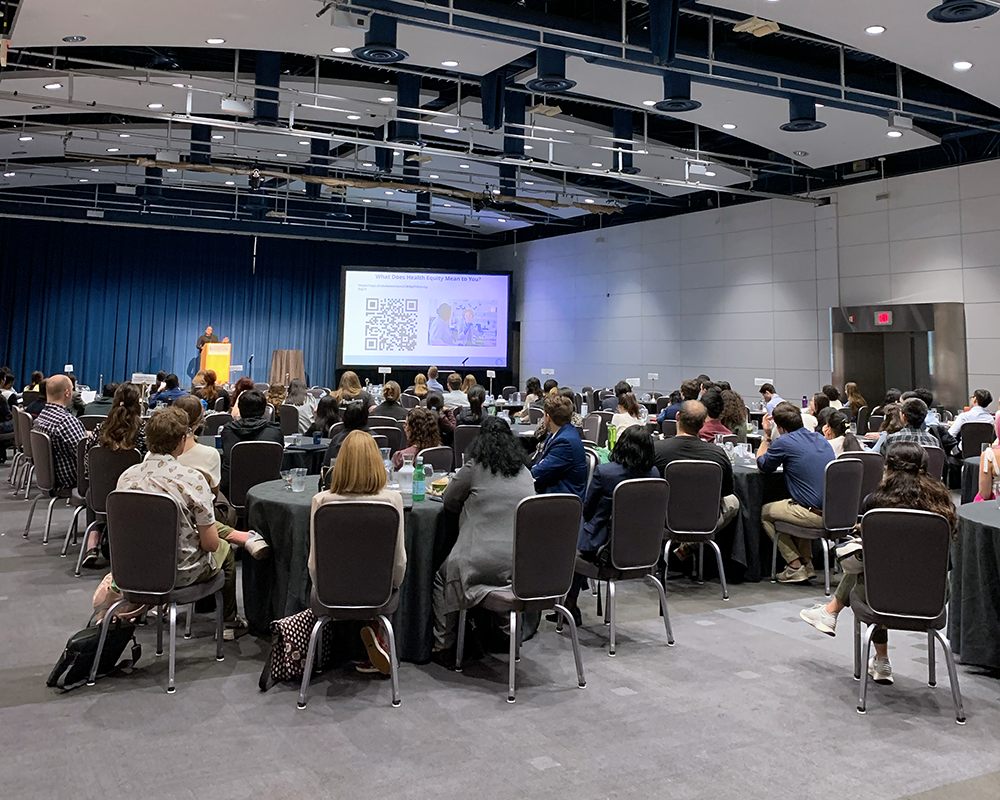A Postbac Perspective
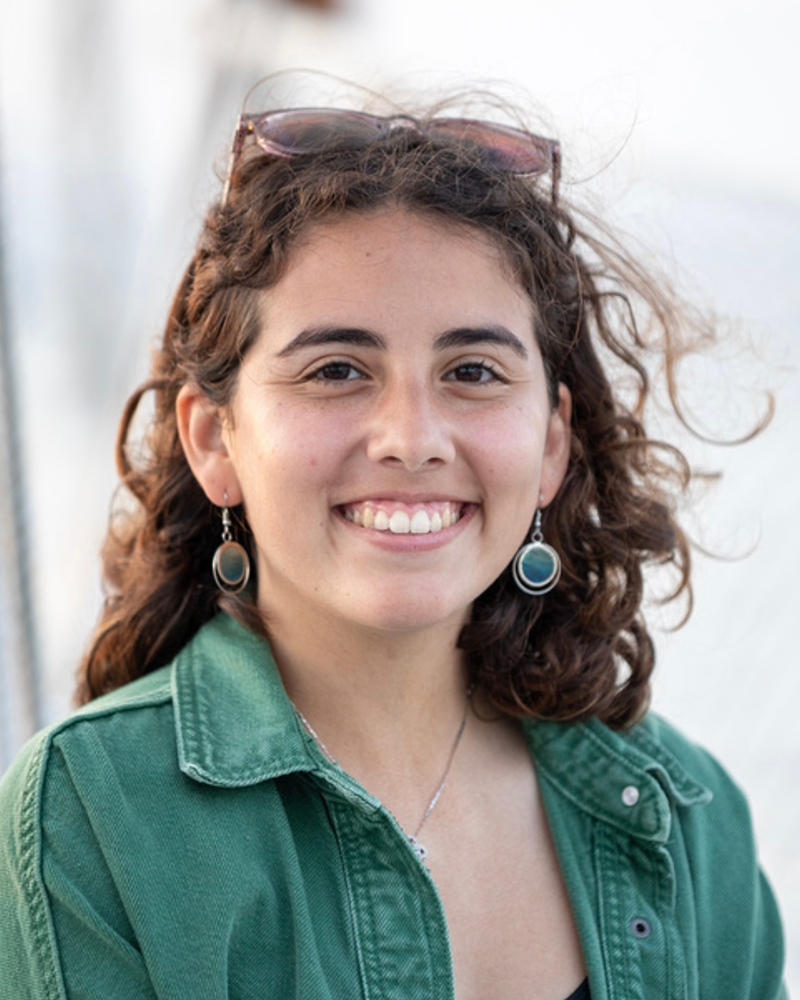
Isabella Cisneros
On a warm October morning, I walked into the Ronald Reagan Building and International Trade Center with fellow NICHD trainees for the 18th Annual Fellows Retreat, the first in-person iteration of the retreat since the pandemic. The venue was suffused with the excitement of the day ahead as presenters set up posters and attendees grabbed coffees on their way in.
The retreat kicked off with opening remarks from NICHD Scientific Director, Chris McBain, PhD, who highlighted the Division’s successes over the past year. Dr. McBain praised the diversity of science across the Division and encouraged attendees to learn about their colleagues’ work. Following opening remarks, Guoyang Luo, MD, PhD, an obstetrics and gynecology physician-scientist with INOVA Healthcare, gave a keynote address on the nonlinearity of his career path and provided attendees with advice on how to approach their own careers based on his experiences.
The nonlinear nature of a career in science was a central theme of the retreat—and one I found frequently resurfaced in discussions with career speakers following the keynote address. As a postbac, I was grateful to have access to professionals across the spectrum of science careers and to hear about the wide-ranging experiences that others have had.
Following the career discussions, Program Officer Erika Barr, PhD, spoke on behalf of the NICHD Office of Health Equity. She discussed how trainees can contribute to equity, advocating for a bench to bedside to curbside approach. In the spirit of this approach, which aims to bring translational research into communities to help combat health disparities, Dr. Barr encouraged trainees to consider how we can maximize the impact of our research and shared an opportunity to join the Office of Health Equity Advisory Committee. I appreciated the opportunities that Dr. Barr and others highlighted throughout the retreat, and I hope to see trainees engage with them outside of their research.
One of the highlights of the retreat was the five-minute presentations given by the fellows. The diversity of research that Dr. McBain described at the start of the retreat was on full display during these talks, and it was incredibly exciting to hear about the work happening across the division. Three of these talks were given by postbacs— Avani Modak and Sean Lee from the Farrell lab and Allison Saul from the Rogers lab—which were impressive in their accessibility and research design.
I was particularly interested by the optogenetics tools being used by the Rogers lab to manipulate and investigate important signaling pathways during development, which Ms. Saul described in her talk. Outside of the talks, postbacs continued to shine in the poster session, which ran the gamut of models and research topics.
In reflecting on the day’s events, I found myself returning to something that Dr. McBain said during his remarks: “The science we do is incredible, [and] we can’t do that without you.” As a relatively new postbac, it was inspiring to see the research being done in NICHD and to know that I am contributing to it.
To all the new trainees who have joined NICHD throughout these last few months, I wish you all the luck and success, and I am so glad to be your colleague. Here’s to another year of remarkable science and fostering community!
Lessons from the Career Roundtables: A Graduate Student Perspective
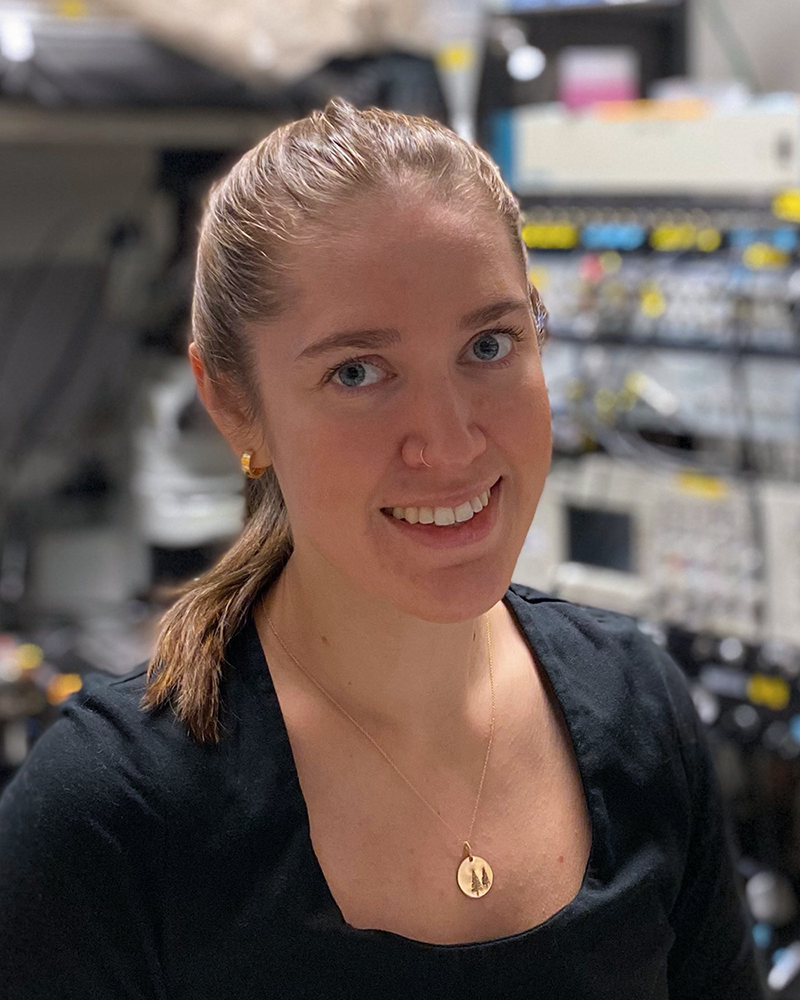
Leah Pappalardo
“Science feels like I’m in love,” said Natalie Porat-Shilom, PhD, Stadtman Investigator in NCI’s Center for Cancer Research Thoracic and Gastrointestinal Malignancies Branch, as she shared her story with trainees during the roundtable portion of the NICHD fellows’ retreat. During roundtable discussions, professionals from research, industry, science administration, and teaching programs sat at tables where trainees could join them for a seated discussion. This segment of the retreat provided valuable insight for graduate students like me who want to have all the facts before committing to a career path.
Dr. Porat-Shilom described the excitement she felt while writing her K99 grant and explained how a good scientific question can carry you through the grueling process of the faculty job search. She embodied the archetype of the passion-fueled scientist.
From another perspective, Kyle O’Connell, PhD, a bioinformatics data scientist at Delloitte, may tell you that sometimes love for research is not enough. Dr. O’Connell left the underfunded field of reptile research for an American Association for the Advancement of Science (AAAS) fellowship at the State Department. However, while he was waiting for his security clearance—with a baby on the way—an enticing opportunity arose in the private sector. Dr. O’Connell decided to forgo the fellowship to pursue industry. Based on his experiences, he confirmed that there’s a whole world of gratifying careers in science.
While Dr. O’Connell chose not to continue with the AAAS fellowship, Shilpy Dixit, PhD, a program officer (PO) in the National Center on Sleep Disorders Research at the National Heart Lung and Blood Institute (NHLBI), toted the fellowship as the premier steppingstone into government. The fellowship places PhDs into agencies where they use their expertise to inform areas such as policy. It can lead to permanent jobs, but it also grants you access to a tight networking community.
Dr. Dixit’s fellowship at the NIH led to her current position where she performs many roles, one of which is grant writing and review. Despite her previous resistance to grant writing, she found that she loves this part of her role. Dr. Dixit emphasized that POs want to help you write your grant at any stage. If you are a postdoc with a vague idea for your K99, contact the PO in that field.
Kate Monzo, PhD, an associate professor at Montgomery College in Rockville, Maryland, represented career paths in teaching. At the career discussion session, she used a a QR code that linked to a list of resources for attendees, reflecting the technology-friendly teaching style she adopted during her career. The classroom that Dr. Monzo described sounded radically different from those just a decade ago.
I learned that teachers today can effectively teach virtually and incorporate “active learning” and “structured remote” principles in their curricula. If you want to go into teaching, Dr. Monzo suggests pursuing one of the many mentorship programs where you can gain hands-on experience under a current professor. Dr. Monzo’s strategy as a teacher is full of constant problem-solving and adaptation, and requires a strong dedication to the craft, much like what is required in research.
Each of the representatives faced their own challenges and trade-offs before settling into a career. Importantly, each person landed in a position that they find rewarding enough to represent at a fellow’s retreat. As a current graduate student, it was encouraging to see that whether my next steps are fueled by passion or circumstances, the skills that I am learning can lead to a fulfilling career.
Unraveling the Ball of Yarn: A Postdoctoral Reflection on Individual Paths in Science
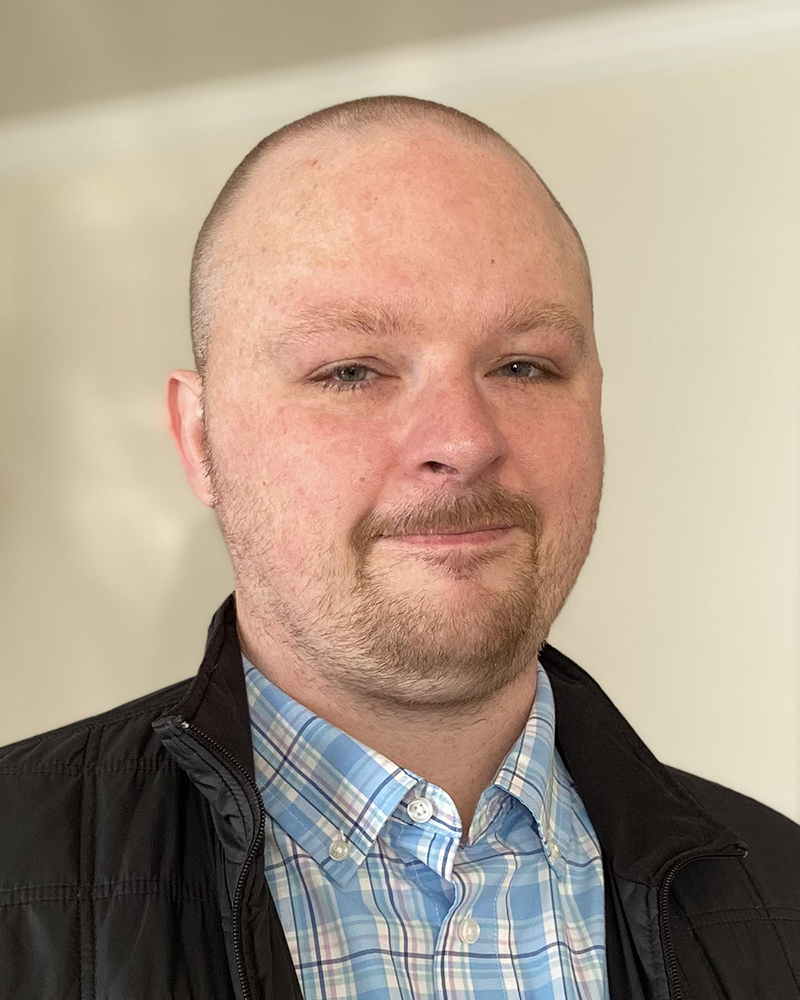
Ian Trees, PhD
As I reflect on the recent NICHD Fellows’ Retreat, the first in-person gathering since 2019, a vivid metaphor keeps coming to mind: life as a tangled ball of yarn. This imagery, evoked during Dr. Natalie Porat-Shilom 's career path introduction, beautifully encapsulates the non-linear, intricate, and personal nature of scientific careers, much like the unique paths we all tread at the NIH.
The significance of our return to an in-person retreat, especially outside the day-to-day familiarity of the NIH campus, cannot be understated. This change of scenery seemed to underscore the retreat's theme – a departure from the conventional, a step toward broader horizons. For many young scientists, this retreat was more than a gathering; it was a rite of passage, a debut on a significant stage, marking a pivotal moment in their burgeoning careers.
The retreat focused on trainees. This spotlight on the new generation of scientists brought an energy of potential and promise, best encapsulated in the words of our scientific director, Chris McBain, PhD, who reminded us that “the work you do is momentous” and encouraged us to explore realms of science outside of our comfort zones.
The reminder from Erin Walsh, PhD, Director of the NICHD Office of Education, that the NIH and NICHD are dedicated to supporting trainees set a tone of empowerment and support. This message was further echoed in the keynote by Guoyang Luo, MD, PhD, of INOVA Healthcare, who emphasized the non-linear nature of scientific careers and the balance between personal life and professional advancement. This emphasis on non-linearity and balance reflects the Office of Education’s commitment to fostering an environment that acknowledges and supports the diverse needs and aspirations of each individual scientist.
The array of NICHD alumni sharing their diverse career trajectories, from academia to industry and government, not only reinforced the non-linear nature of scientific careers but also stressed the importance of equity in scientific career development. Each story highlighted that just as every career path is distinct, so are the backgrounds, needs, and aspirations of each individual scientist. This diversity demands a broader, more inclusive approach to career support and development that acknowledges and nurtures these unique journeys.
Building on this foundation, Erika Barr, PhD, a program officer within NICHD, discussed the formation of an NICHD Innovative Culture Advisory Committee. This initiative reflects NICHD’s commitment to promoting equity and inclusion within the scientific community and supports the creation of a nurturing and equitable environment.
As we delved into standards, metrics, and tools to track and share progress in pursuing equity, it became evident that this pursuit extends beyond simple demographic representation. Equity is about fostering an environment where each scientist can thrive, where the tangled yarn of each career can be unraveled and appreciated for its unique pattern and contribution to the scientific world.
The NICHD scientific retreat was more than a gathering of minds; it was a celebration of individual paths and a call to action for equity in science. It was a reminder that while our journeys are diverse and non-linear, they are all threaded together in the grand tapestry of scientific endeavor. As we forge ahead in our respective paths, let's remember the power of individuality in our collective pursuit of knowledge and progress.

